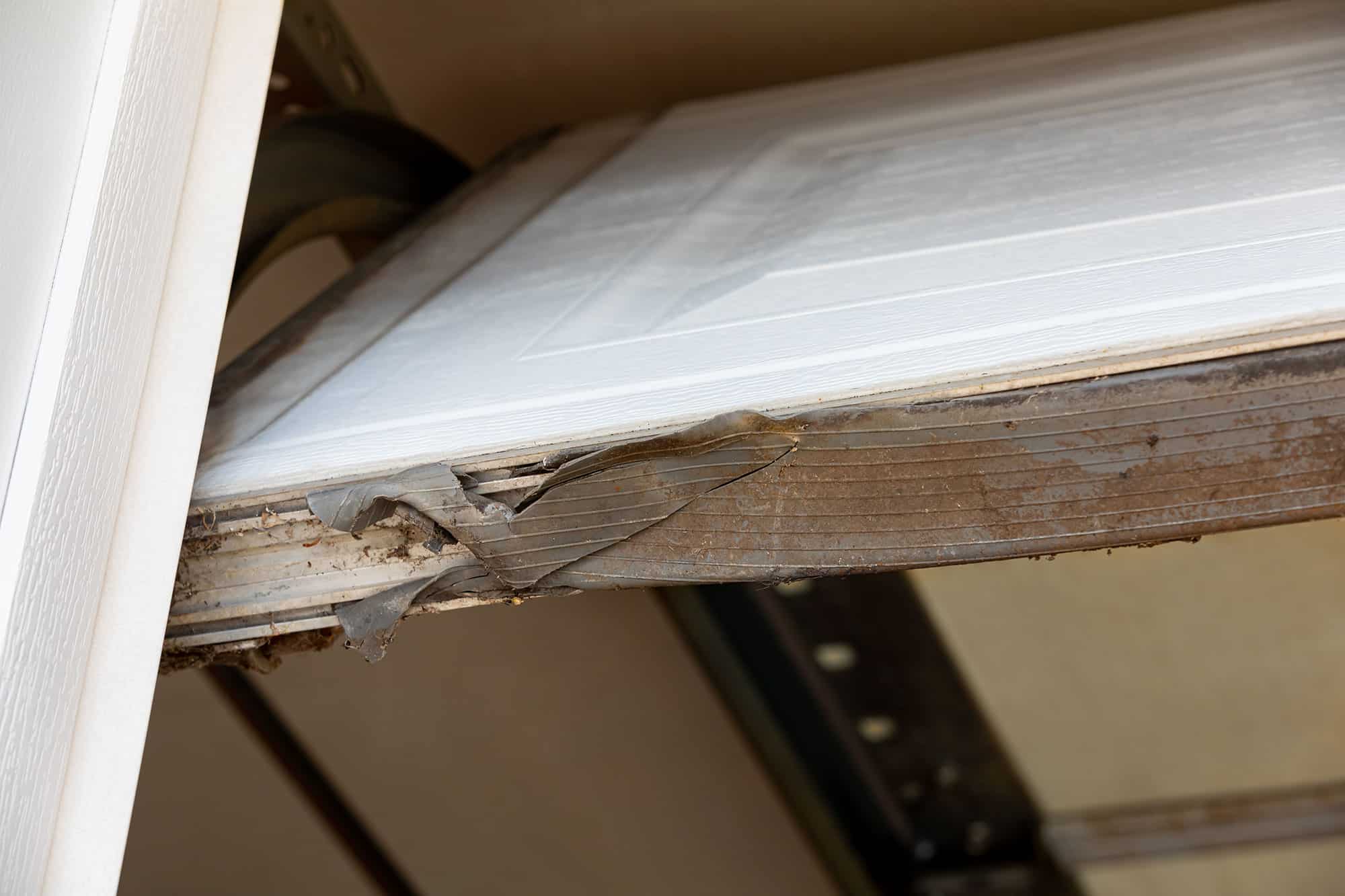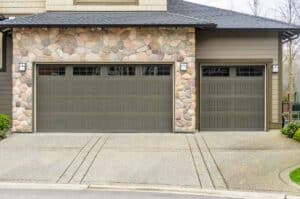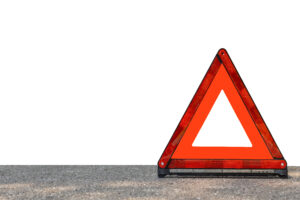Topics Covered:
Are you struggling with a garage door that just won’t close? You aren’t alone! Garage doors are complex systems, and even a minor issue can cause them to malfunction. This malfunction can be caused by a variety of factors, from minor obstructions to serious mechanical failures. Below are 10 of the most common reasons why your garage door might not be closing.
Power Source Issues
Sometimes, the reason your door won’t close is as simple as a disconnected power source or tripped breaker. Garage doors are powered by electricity, so if there’s no electricity, then they can’t operate. First, check to see if the door is plugged in (unless it’s wired into your home’s power grid) and make sure that the circuit breaker hasn’t tripped. If the problem persists, you may need a professional to inspect for electrical faults.
Faulty Remote Control
A common cause of garage door issues is the remote control itself, including weak batteries, interference from nearby electronics, or being out of range. All of these factors can affect the remote’s operation and disrupt its function. To see if this is the issue, you can test the wall-mounted button inside your garage. If the door closes, the issue may be with the remote. You can most likely simply replace the batteries or move closer to the garage to solve this problem.
Sensor Obstruction or Misalignment
Most modern garage doors come with safety sensors that trigger an automatic reverse function in the case of object detection. These sensors are positioned on each side of the door near the bottom of the frame to best detect objects in the door’s path and prevent the door from closing on these objects. Sometimes dust, dirt, or small objects can block the sensors or the sensors can become misaligned. To remedy this issue, simply clean the sensors and check their alignment with each other.
Learn more about our garage door sensor repair services.
Misconfigured Limit Settings
Limit settings tell the door how far to travel before stopping. If these limit settings are misconfigured, the door may close prematurely or reverse direction. For most garage doors, these settings can be adjusted manually. Be sure to reference the garage door manual for instructions because incorrect configurations can worsen the issue or even damage the door.
Track Obstructions or Misalignment
Garage doors tracks can easily become obstructed by dirt, pebbles, or rust buildup which can impede movement. If the tracks are dirty or obstructed, doors might not function properly. Be sure to check and clean tracks regularly to avoid obstruction. Similarly, if the tracks are misaligned, there may be a grinding noise or gaps between the rollers and rail. Repairing track misalignment requires a professional to avoid further damage as DIY adjustments could worsen alignment issues.
Learn more about our garage door track services.
Broken Springs
Springs bear most of the heavy weight of garage doors and balance the tension. When these springs weaken or break, the door may not close properly or may feel unusually heavy. Broken springs are a serious safety concern, pose a significant safety threat, espeically in DIY repairs, and require professional assistance. Faulty or broken springs account for thousands of service calls every year.
Learn more about our garage door spring repair services.
Worn-Out or Broken Cables
Cables work alongside springs to support the door’s weight, guide it smoothly along its tracks, and allows it to open and close smoothly. Over time, cables can fray or snap which makes the door challenging to operate. Frayed or broken cables are an important issue since they can snap under tension and lead not only to a malfunctioning door but also to serious accidents. For your safety, you should regularly inspect cables, but have them repaired and replaced by professionals.
Learn more about our garage door cable repair services.
Extreme Weather Conditions
Various weather conditions can be the root cause of your garage door not closing properly. Sever temperature changes and humidity can impact your door’s operations. For example, in colder temperatures, metal parts may contract and become stiff; while high humidity can cause wooden doors to swell. Weather can also cause sensors to malfunction and misalign as well. In these cases, regular maintenance and using weather-resistant lubricant can help ensure continuous smooth operation during weather events.
Door is Locked
Some garage doors have a manual lock that can easily be accidentally engaged and prevent the door from moving. Check you manual lock or any locking feature on the control panel to ensure that the lock was not accidentally engaged, espeically if your door was recently operated manually. This is a simple fix that can be often overlooked.
Aging or Damaged Opener System
While garage door openers are designed to last 10 to 15 years, if your system is reaching that age, it might be time for an upgrade since an old opener system can lead to the door not closing or otherwise operating smoothly. An aging opener might struggle to lift the door, operate inconsistently, or be noisier, leading to more frequent breakdowns and indicate the need for maintenance or replacement. If you’ve ruled out other issues, this may be the cause of your door not closing.
Learn more about our garage door opener repair services.




